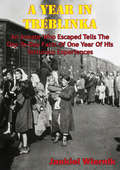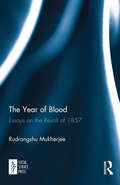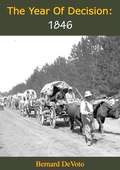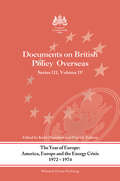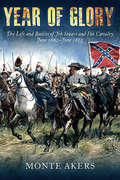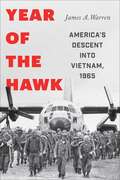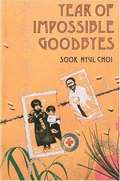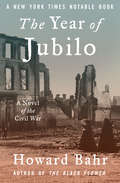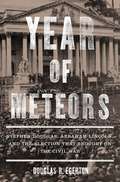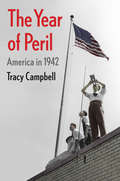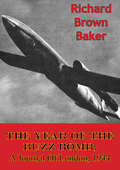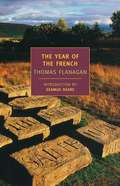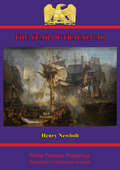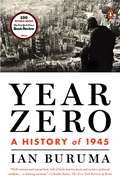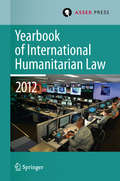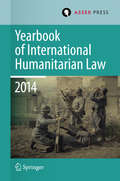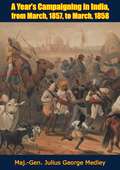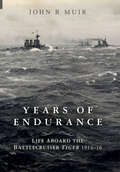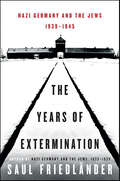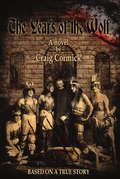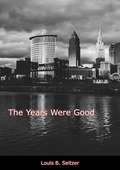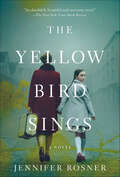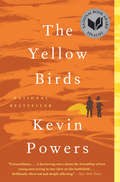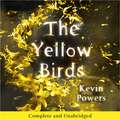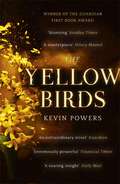- Table View
- List View
A Year In Treblinka
by Jankiel WiernikAn Inmate Who Escaped Tells The Day-To-Day Facts Of One Year Of His Torturous Experiences.Jankiel Wiernik was a Jewish property manager in Warsaw when the Nazis invaded Poland and was forced into the ghetto in 1940. Despite surviving the horrors of the ghetto at the advanced age of 52, he was sent to a fate worse than death at the notorious death camp at Treblinka, which he immortalized in his memoirs."On his arrival at Treblinka aboard the Holocaust train from Warsaw, Wiernik was selected to work rather than be immediately killed. Wiernik's first job with the Sonderkommando required him to drag corpses from the gas chambers to mass graves. Wienik was traumatized by his experiences. He later wrote in his book: "It often happened that an arm or a leg fell off when we tied straps around them in order to drag the bodies away." He remembered the horrors of the enormous pyres, where "10,000 to 12,000 corpses were cremated at one time." He wrote: "The bodies of women were used for kindling" while Germans "toasted the scene with brandy and with the choicest liqueurs, ate, caroused and had a great time warming themselves by the fire." Wiernik described small children awaiting so long in the cold for their turn in the gas chambers that "their feet froze and stuck to the icy ground" and noted one guard who would "frequently snatch a child from the woman's arms and either tear the child in half or grab it by the legs, smash its head against a wall and throw the body away." At other times "children were snatched from their mothers' arms and tossed into the flames alive." "Wiernik escaped Treblinka during the revolt of the prisoners on "a sizzling hot day" of August 2, 1943. A shot fired into the air signalled that the revolt was on. Wiernik wrote that he "grabbed some guns" and, after spotting an opportunity to make a break for the woods, an axe..."
The Year of Blood: Essays on the Revolt of 1857
by Rudrangshu MukherjeeRudrangshu Mukherjee places the ‘soldier-peasant’ at the forefront of the Revolt. Violence has rarely been described with so much realism and subtlety. The imaginative use of primary source materials adds clarity to accounts such as the massacre in Satichaura Ghat and the trial of Mangal Pandey. The layers of complexity that defined the relationship between the rulers and the subjugated are also exposed.
The Year Of Decision: 1846
by Bernard DevotoThis book tells many fascinating stories of the U.S. explorers who began the Western march from the Mississippi to the Pacific, from Canada to the annexation of Texas, California, and the Southwest lands from Mexico. It is the penultimate book of a trilogy which includes Across the Wide Missouri, for which DeVoto won both the Pulitzer and Bancroft prizes in 1948, and The Course of Empire, which won the National Book Award for Nonfiction in 1953. DeVoto's narrative covers the expanding Western frontier, the Mormons, the Donner party, Fremont's exploration, the Army of the West, and takes readers into Native American tribal life.
The Year of Europe: Documents on British Policy Overseas, Series III Volume IV (Whitehall Histories Ser. #Vol. Iii)
by Keith Hamilton Patrick Salmon Christopher Baxter Alastair NobleThis is the latest volume of Documents on British Policy Overseas and the first in the series to be produced in electronic format, covering the principal themes of: the European Union, transatlantic divisions, war in the Middle East and the diplomacy of the energy crisis. Edited and selected by Foreign and Commonwealth Office historians, it consist
Year of Glory
by Monte AkersNo commander during the Civil War is more closely identified with the "cavalier mystique" as Major General J. E. B. (Jeb) Stuart. And none played a more prominent role during the brief period when the hopes of the nascent Confederacy were at their apex, when it appeared as though the army of Northern Virginia could not be restrained from establishing Southern nationhood. Stuart was not only successful in leading Robert E. Lee's cavalry in dozens of campaigns and raids, but for riding magnificent horses, dressing outlandishly, and participating in balls and parties that epitomized the "moonlight and magnolia" image of the Old South. Longstreet reported that at the height of the Battle of Second Manasses, Stuart rode off singing, "If you want to have good time, jine the cavalry . . ." Porter Alexander remembered him singing, in the midst of the miraculous victory at Chancellorsville, "Old Joe Hooker, won't you come out of the Wilderness?" Stuart was blessed with an unusually positive personality--always upbeat, charming, boisterous, and humorous. He was remembered as the only man who could make Stonewall Jackson laugh. He recited poetry when not engaged in battle, and yet never used alcohol or other stimulants. Year of Glory focuses on the twelve months in which Stuart's reputation was made, following his career on an almost day-to-day basis from June 1862, when Lee took command of the army, to June 1863, when Stuart turned north to regain a glory slightly tarnished at Brandy Station, but found Gettysburg instead. It is told through the eyes of the men who rode with him, as well as Stuart's letters, reports, and anecdotes handed down over 150 years. It was a year like no other, filled with exhilaration at the imminent creation of a new country. This was a period when it could hardly be imagined that the cause, and Stuart himself, could dissolve into grief.
Year Of The Hawk: America's Descent into Vietnam, 1965
by James A. WarrenFrom a celebrated military historian, a powerful account of the most pivotal year of the Vietnam War—the cataclysm that forever changed America.The Vietnam War was the greatest disaster in the history of American foreign policy. The conflict shook the nation to its foundations, exacerbating already deep cleavages in American society, and left the country baffled and ambivalent about its role in the world. Year of the Hawk is a military and political history of the war in Vietnam during 1965—the pivotal first year of the American conflict, when the United States decided to intervene directly with combat units in a struggle between communist and pro-Western forces in South Vietnam that had raged on and off for twenty years. By December 1965, a powerful communist offensive had been turned back, and the US Army had prevailed in one of the most dramatic battles in American military history, but nonetheless there were many signs and portents that US involvement would soon slide toward the tipping point of tragedy. Vividly interweaving events in the US capital with action in Southeast Asia, historian James A. Warren explores the mindsets and strategies of the adversaries and concludes that, in the end, Washington was not so much outfought in Vietnam as outthought by revolutionaries pursuing a brilliant protracted war strategy. Based on new research, Year of the Hawk offers fresh insight into how a nationalist movement led by communists in a small country defeated the most powerful nation on earth.
Year of Impossible Goodbyes
by Sook Nyul ChoiA young Korean girl survives the oppressive Japanese and Russian occupation of North Korea during the 1940s, to later escape to freedom in South Korea.
The Year of Jubilo: A Novel of the Civil War
by Howard BahrA “sweeping, cinematic story of rebellion, loyalty, revenge, and reawakened romance” set in the immediate aftermath of the Civil War (The New York Times Book Review). A New York Times Notable Book The last time Gawain Harper saw Cumberland, Mississippi, he was heading off to fight for the newly formed Confederate States of America—driven not by the cause that motivated so many others, but by love. The father of his beloved, Morgan Rhea, refused to allow her to be courted by a man who would not take up arms to defend the South. So Gawain joined the Mississippi Infantry—and now, three nightmarish years later, he is coming home. But postwar Cumberland is not the place Gawain so fondly remembered. An occupying force of Union soldiers keeps uneasy watch over the townspeople, including an erstwhile slave hunter and an albino gravedigger known as Old Hundred-and-Eleven. Meanwhile, a bloodthirsty former Confederate officer named King Solomon Gault is organizing a secret militia to drive the occupiers out and bring the entire region under his ruthless control. Before Gawain can marry Morgan and build their new life together, he must return to the world of violence and turmoil he has been so desperate to escape. With “complex, well-crafted, often beautiful prose” (TheSeattle Times) and “a cast of characters worthy of a Larry McMurtry novel” (Newsday), The Year of Jubilo is a stunning achievement from the award-winning author of The Black Flower and The Judas Field.
Year of Meteors: Stephen Douglas, Abraham Lincoln, and the Election That Brought on the Civil War
by Douglas R. EgertonAn analysis of the events that led up to the 1860 Presidential election and the machinations that culminated in the Civil War.
The Year of Peril: America in 1942
by Tracy CampbellA fascinating chronicle of how the character of American society revealed itself under the duress of World War II The Second World War exists in the American historical imagination as a time of unity and optimism. In 1942, however, after a series of defeats in the Pacific and the struggle to establish a beachhead on the European front, America seemed to be on the brink of defeat and was beginning to splinter from within. Exploring this precarious moment, Tracy Campbell paints a portrait of the deep social, economic, and political fault lines that pitted factions of citizens against each other in the post–Pearl Harbor era, even as the nation mobilized, government‑aided industrial infrastructure blossomed, and parents sent their sons off to war. This captivating look at how American society responded to the greatest stress experienced since the Civil War reveals the various ways, both good and bad, that the trauma of 1942 forced Americans to redefine their relationship with democracy in ways that continue to affect us today.
The Year Of The Buzz Bomb; A Journal Of London, 1944: A Journal Of London 1944
by Richard Brown BakerOne humble GI working for the OSS in London recounts his experiences under bombardment by the Nazi wonder-weapon, the V-1 flying rocket."London in April and May of 1944 was a battered, cheered hero. The whole Allied world admired the fortitude of its inhabitants, survivors of the fires and explosions of persistent Luftwaffe attacks."It was to this London that I came as one of the innumerable Americans shipped overseas for the war effort, having crossed the Atlantic on the crowded Queen Mary, nearly fifteen thousand troops aboard, which sped out of submarine range into a Scottish port toward the end of March. We came, a batch of us, by night in a darkened troop-train to London, where we arrived in a gray dawn as one of the last of the "Little Blitz" air attacks was ending."After 1944's balmy, agreeable April the weather worsened. Then by mid-June began the prolonged and terrifying bombardment of London by flying bombs (nicknamed also V-1, buzz bombs, doodle bugs, rocket bombs, and pilotless planes) that were launched from across the English Channel."
The Year of the French (The Thomas Flanagan Trilogy)
by Seamus Deane Thomas FlanaganIn 1798, Irish patriots, committed to freeing their country from England, landed with a company of French troops in County Mayo, in westernmost Ireland. They were supposed to be an advance guard, followed by other French ships with the leader of the rebellion, Wolfe Tone. Briefly they triumphed, raising hopes among the impoverished local peasantry and gathering a group of supporters. But before long the insurgency collapsed in the face of a brutal English counterattack.Very few books succeed in registering the sudden terrible impact of historical events; Thomas Flanagan's is one. Subtly conceived, masterfully paced, with a wide and memorable cast of characters, The Year of the French brings to life peasants and landlords, Protestants and Catholics, along with old and abiding questions of secular and religious commitments, empire, occupation, and rebellion. It is quite simply a great historical novel.Named the most distinguished work of fiction in 1979 by the National Book Critics' Circle.
The Year Of Trafalgar
by Sir John Henry NewboltA happy idea carried to excellent completion by very competent hands is the best description of The Year of Trafalgar, by Henry Newbolt. It is not likely that this year of splendid memory will find a worthier literary tribute than this delightful volume. Mr. Newbolt's is much more than a familiar story, gracefully retold. He has made an exhaustive study of all the details of the Naval Campaign of 1805, and his narrative is of distinct historical value. As might have been expected, Mr. Newbolt writes with deliberate sobriety and restraint. Great deeds are best told simply, and the last glorious chapter in the life of Nelson needs no literary embellishment. Every danger besetting a task full of difficulty is evaded. He is not laboured, nor pedantic, nor sentimental, but rather tells the great story in a direct and manly way, eminently befitting the subject. His is a book which every boy should read in "Nelson's year," and no Briton of any age will read it unmoved. It was a happy thought to add to the narrative an anthology of Trafalgar poetry. It is a little curious, as Mr. Newbolt points out, how our greatest warlike achievements have received scant treatment from our poets. The "Victory " has been less fortunate than "The Revenge" or "The Temeraire." Strange that it did not rouse the war-bugle of Campbell to an immortal strain. Of all the verses, Mr. Newbolt's own are perhaps the best. Some day, we trust, he will give us a song of Nelson to rank in all future patriotic anthologies with his incomparable "Drake's Drum," "The Fighting Temeraire," and "The Ballad of the Bold Menelaus."--The Bookman 1905.
Year Zero: A History of 1945
by Ian BurumaA marvelous global history of the pivotal year 1945 as a new world emerged from the ruins of World War IIYear Zero is a landmark reckoning with the great drama that ensued after war came to an end in 1945. One world had ended and a new, uncertain one was beginning. Regime change had come on a global scale: across Asia (including China, Korea, Indochina, and the Philippines, and of course Japan) and all of continental Europe. Out of the often vicious power struggles that ensued emerged the modern world as we know it.In human terms, the scale of transformation is almost impossible to imagine. Great cities around the world lay in ruins, their populations decimated, displaced, starving. Harsh revenge was meted out on a wide scale, and the ground was laid for much horror to come. At the same time, in the wake of unspeakable loss, the euphoria of the liberated was extraordinary, and the revelry unprecedented. The postwar years gave rise to the European welfare state, the United Nations, decolonization, Japanese pacifism, and the European Union. Social, cultural, and political "reeducation" was imposed on vanquished by victors on a scale that also had no historical precedent. Much that was done was ill advised, but in hindsight, as Ian Buruma shows us, these efforts were in fact relatively enlightened, humane, and effective.A poignant grace note throughout this history is Buruma's own father's story. Seized by the Nazis during the occupation of Holland, he spent much of the war in Berlin as a laborer, and by war's end was literally hiding in the rubble of a flattened city, having barely managed to survive starvation rations, Allied bombing, and Soviet shock troops when the end came. His journey home and attempted reentry into "normalcy" stand in many ways for his generation's experience.A work of enormous range and stirring human drama, conjuring both the Asian and European theaters with equal fluency, Year Zero is a book that Ian Buruma is perhaps uniquely positioned to write. It is surely his masterpiece.
Yearbook of International Humanitarian Law Volume 15, 2012
by Terry D. Gill Robin Geiß Robert Heinsch Tim Mccormack Christophe Paulussen Jessica Dorsey'Child Soldiers and the Lubanga Case' and 'The Tallinn Manual on the International Law Applicable to Cyber Warfare' are the two central themes of this volume. Each of these timely topics is addressed from three different angles, providing a truly comprehensive analysis of the subject. The book also features an article on the duty to investigate civilian casualties during armed conflict and its implementation in practice and an elaborate year in review, discussing developments that occurred in 2012. The Yearbook of International Humanitarian Law is the world's only annual publication devoted to the study of the laws governing armed conflict. It provides a truly international forum for high-quality, peer-reviewed academic articles focusing on this crucial branch of international law. Distinguished by contemporary relevance, the Yearbook of International Humanitarian Law bridges the gap between theory and practice and serves as a useful reference tool for scholars, practitioners, military personnel, civil servants, diplomats, human rights workers and students.
Yearbook of International Humanitarian Law Volume 17, 2014
by Terry D. Gill Robin Geiß Heike Krieger Tim Mccormack Christophe Paulussen Jessica DorseyThis volume commemorates the centenary of the FirstWorld War (1914-2014) and aims to capture 100 years of warfare evolution. Amongthe main issues addressed are the changing nature of means and methods ofwarfare, the law of weaponry, and challenges to humanitarian assistance andprotection of the civilian population affected by armed conflict. Specifictopics include the legal regime governing nuclear weapons, the prohibition ofchemical weapons and arms control, the evolution of naval warfare, asymmetricconflicts, the law of occupation and cultural property. A comprehensive Year in Review also describes themost important events and legal developments that took place in 2014. The Yearbook ofInternational Humanitarian Law is the world's only annual publicationdevoted to the study of the laws governing armed conflict. It provides a trulyinternational forum for high-quality, peer-reviewed academic articles focusingon this crucial branch of international law. Distinguished by contemporaryrelevance, the Yearbook of InternationalHumanitarian Law bridges the gap between theory and practice and serves asa useful reference tool for scholars, practitioners, military personnel, civilservants, diplomats, human rights workers and students.
A Year's Campaigning in India, from March, 1857 to March, 1858
by Maj.-Gen. Julius George MedleyIn A Year’s Campaigning in India, which was first published in 1858, author Julius George Medley provides the reader with a vivid account of the events—and the distinguished part he took—in March 1857 through to March 1858 during the India Rebellion.The rebellion began on 10 May 1857 in the form of a mutiny of sepoys of the Company's army in the garrison town of Meerut, 40 miles northeast of Delhi (now Old Delhi). It then erupted into other mutinies and civilian rebellions chiefly in the upper Gangetic plain and central India, though incidents of revolt also occurred farther north and east. The rebellion posed a considerable threat to British power in that region, and was contained only with the rebels' defeat in Gwalior on 20 June 1858.Medley’s narrative focuses on the Bozdar Expedition in the Derajat Hills, in March 1857; the Siege and Capture of Delhi, in September 1857; Colonel Seaton’s Campaign in the Doab, in December, 1857; and the Siege and Capture of Lucknow, in March 1858.An unmissable addition to complete any British Military History collection.
Years of Endurance: Life Aboard the Battlecruiser Tiger 1914–16
by John MuirThis memoir is perhaps one of the most immediate and vivid recollections of life in a Royal Navy battlecruiser to come out of the First World War. John Muir, a surgeon, was the senior medical officer aboard HMS Tiger from her commissioning in October 1914 until his departure in the autumn of 1916 when she was then undergoing repairs at Rosyth to the damage incurred at the battle of Jutland in June that year. Vivid, authoritative, empathetic and beautifully written, this memoir takes the reader right to the center of the action in the first years of the War. The book begins with a stirring account of a night in the wild North Sea with Tiger, head to wind in a gale, steaming at a reduced speed of 10 knots, her purpose to intimidate the German fleet ‘by the mere terror of our presence’. The scene set, Muir’s narrative then describes his experiences from the early days of mobilization, when he was the Senior Medical Officer of the barracks at Chatham, to his arrival aboard Tiger on the Clyde, her commissioning and the drilling of fifteen hundred officers and ratings as she put out to sea for the first time. In the first months of her career she was involved in intercepting the German raid on Scarborough before fighting the battlecruisers Derfflinger, Moltke, and Seydlitz at Dogger Bank. In May 1916 she found herself in line just astern of the doomed Queen Mary at Jutland. Muir had a ringside seat at these critical and decisive clashes and brings remarkable perception and clarity in the telling of his experiences. But more than a narrative of events, his story is also one about the officers and men who were his comrades in those years; about their qualities, their anxieties and the emotional dimension of their experiences. His insights are those of a man trained to understand the human heart, and they bring vividly to life a generation of men who fought at sea more than one hundred years ago. This is a spellbinding and gripping memoir, brought to a new audience in a handsome collectors’ edition for the first time since its publication in 1936.
The Years of Extermination: Nazi Germany and the Jews, 1939–1945
by Saul Friedländer"Establishes itself as the standard historical work on Nazi Germany’s mass murder of Europe’s Jews. . . . An account of unparalleled vividness and power that reads like a novel. . . . A masterpiece that will endure." — New York Times Book ReviewThe Years of Extermination, the completion of Saul Friedländer's major historical opus on Nazi Germany and the Jews, explores the convergence of the various aspects of the Holocaust, the most systematic and sustained of modern genocides.The enactment of the German extermination policies that resulted in the murder of six million European Jews depended upon many factors, including the cooperation of local authorities and police departments, and the passivity of the populations, primarily of their political and spiritual elites. Necessary also was the victims' willingness to submit, often with the hope of surviving long enough to escape the German vise.In this unparalleled work—based on a vast array of documents and an overwhelming choir of voices from diaries, letters, and memoirs—the history of the Holocaust has found its definitive representation.
The Years of the Wolf
by Craig CormickThis story begins with a murder. A German internee is found dead inside a civilian internment camp during World War One, and one young internee, Arno Friedrich, determines to find the killer. But the more he probes into the lives of his fellow internees the more he discovers that little within the old stone prison is as he had imagined. He finds that the Germanic facades and fantasies the men construct hide secrets within secrets. And a killer.
The Years Were Good
by Louis B. SeltzerLOUIS BENSON SELTZER was born September 19, 1897, in a single-story cottage back of a fire station on Cleveland’s near West Side—on the other side of the river and the other side of the tracks. The oldest of five children in a household always short of cash, he was hardly in knee britches before he was handling a paper route to help out the kitchen bank. His father was Charles Alden Seltzer, who was to write 49 books, many of which were later made into motion pictures. But when Louis Seltzer was seven years old his father had not yet sold his first story, and when he was thirteen he left school without finishing seventh grade in order to take a job as an office boy and cub reporter on The Leader. A year later he moved over to The Cleveland News, only to come back to The Leader where, in addition to his other duties, he wrote a column under the by-line of “Luee, The Offis Boy.” Once more he shifted to The Cleveland News, and after a short time there he was fired—and told he’d never make a newspaperman.This was early in 1915 and Louis B. Seltzer was not quite eighteen. He was already married to Marion Elizabeth Champlin, and his first child, Chester Ellsworth, was soon to be born. A daughter, Shirley Marion, was born in 1919. Within a year of joining The Press he was made City Editor, only to fire himself from that particular assignment in six months because he didn’t like the desk work. He chose to become a reporter again, specializing in the political beat.In 1921 he again became City Editor of The Press. In 1924 he was named Political Editor. In 1927 he was made Chief Editorial Writer. In March of 1928 he became Associate Editor. And on July 9, in the same year, he was elevated to the post of Editor of The Cleveland Press, a position he has filled ever since. In addition he has been since 1937 Editor-in-Chief of the Scripps-Howard Newspapers of Ohio.
The Yellow Bird Sings: A Novel
by Jennifer RosnerNational Jewish Book Award Finalist "Rosner’s exquisite, heart-rending debut novel is proof that there’s always going to be room for another story about World War II....This is an absolutely beautiful and necessary novel, full of heartbreak but also hope, about the bond between mother and daughter, and the sacrifices made for love." —The New York TimesIn Poland, as World War II rages, a mother hides with her young daughter, a musical prodigy whose slightest sound may cost them their lives.As Nazi soldiers round up the Jews in their town, Róza and her 5-year-old daughter, Shira, flee, seeking shelter in a neighbor’s barn. Hidden in the hayloft day and night, Shira struggles to stay still and quiet, as music pulses through her and the farmyard outside beckons. To soothe her daughter and pass the time, Róza tells her a story about a girl in an enchanted garden:The girl is forbidden from making a sound, so the yellow bird sings. He sings whatever the girl composes in her head: high-pitched trills of piccolo; low-throated growls of contrabassoon. Music helps the flowers bloom. In this make-believe world, Róza can shield Shira from the horrors that surround them. But the day comes when their haven is no longer safe, and Róza must make an impossible choice: whether to keep Shira by her side or give her the chance to survive apart.Inspired by the true stories of Jewish children hidden during World War II, Jennifer Rosner’s debut is a breathtaking novel about the unbreakable bond between a mother and a daughter. Beautiful and riveting, The Yellow Bird Sings is a testament to the triumph of hope—a whispered story, a bird’s song—in even the darkest of times.
The Yellow Birds: A Novel (Litterature & Documents Ser.)
by Kevin Powers<P>A novel written by a veteran of the war in Iraq, The Yellow Birds is the harrowing story of two young soldiers trying to stay alive. <P>"The war tried to kill us in the spring." <P> So begins this powerful account of friendship and loss. In Al Tafar, Iraq, twenty-one-year old Private Bartle and eighteen-year-old Private Murphy cling to life as their platoon launches a bloody battle for the city. Bound together since basic training when Bartle makes a promise to bring Murphy safely home, the two have been dropped into a war neither is prepared for. <P>In the endless days that follow, the two young soldiers do everything to protect each other from the forces that press in on every side: the insurgents, physical fatigue, and the mental stress that comes from constant danger. <P> As reality begins to blur into a hazy nightmare, Murphy becomes increasingly unmoored from the world around him and Bartle takes actions he could never have imagined. <P>With profound emotional insight, especially into the effects of a hidden war on mothers and families at home, The Yellow Birds is a groundbreaking novel that is destined to become a classic.
The Yellow Birds: A Novel
by Kevin PowersWINNER OF THE GUARDIAN FIRST BOOK AWARD 2012WINNER OF THE HEMINGWAY/PEN AWARD 2012NATIONAL BOOK AWARD FINALISTAN AMAZON EDITOR'S PICK: BEST BOOKS OF 2012 A NEW YORK TIMES TOP TEN BOOK OF THE YEARA TIMES BOOK OF THE YEARAN INDEPENDENT BOOK OF THE YEAR A TLS BOOK OF THE YEARAN EVENING STANDARD BOOK OF THE YEARA SUNDAY EXPRESS BOOK OF THE YEARA GUARDIAN BOOK OF THE YEAR A NEW YORK TIMES BOOK OF THE YEARA SUNDAY HERALD BOOK OF THE YEARAN IRISH TIMES BOOK OF THE YEAR An unforgettable depiction of the psychological impact of war, by a young Iraq veteran and poet, THE YELLOW BIRDS is already being hailed as a modern classic.Everywhere John looks, he sees Murph.He flinches when cars drive past. His fingers clasp around the rifle he hasn't held for months. Wide-eyed strangers praise him as a hero, but he can feel himself disappearing. Back home after a year in Iraq, memories swarm around him: bodies burning in the crisp morning air. Sunlight falling through branches; bullets kicking up dust; ripples on a pond wavering like plucked strings. The promise he made, to a young man's mother, that her son would be brought home safely.With THE YELLOW BIRDS, poet and veteran Kevin Powers has composed an unforgettable account of friendship and loss. It vividly captures the desperation and brutality of war, and its terrible after-effects. But it is also a story of love, of great courage, and of extraordinary human survival. Written with profound emotional insight, especially into the effects of a hidden war on families at home, THE YELLOW BIRDS is one of the most haunting, true and powerful novels of our time.'THE YELLOW BIRDS is the All Quiet on the Western Front of America's Arab Wars.'(Tom Wolfe, author of The Bonfire of the Vanities )'Kevin Powers has conjured a poetic and devastating account of war's effect on the individual.'(Damian Lewis, star of Homeland and Band of Brothers )'Inexplicably beautiful'.(Ann Patchett, Orange Prize-winning author of Bel Canto and State of Wonder)(P)2012 Hachette Audio
The Yellow Birds
by Kevin PowersAn unforgettable depiction of the psychological impact of war, by a young Iraq veteran and poet, THE YELLOW BIRDS is already being hailed as a modern classic. It is also a story of love, of great courage, and of extraordinary human survival. WINNER OF THE GUARDIAN FIRST BOOK AWARD NATIONAL BOOK AWARD FINALISTNEW YORK TIMES BESTSELLER and BOOK OF THE YEARA TLS, GUARDIAN, EVENING STANDARD and SUNDAY HERALD BOOK OF THE YEAREverywhere John looks, he sees Murph.He flinches when cars drive past. His fingers clasp around the rifle he hasn't held for months. Wide-eyed strangers praise him as a hero, but he can feel himself disappearing. Back home after a year in Iraq, memories swarm around him: bodies burning in the crisp morning air. Sunlight falling through branches; bullets kicking up dust; ripples on a pond wavering like plucked strings. The promise he made, to a young man's mother, that her son would be brought home safely.Written with profound emotional insight, especially into the effects of a hidden war on families at home, THE YELLOW BIRDS is one of the most haunting, true and powerful novels of our time.
